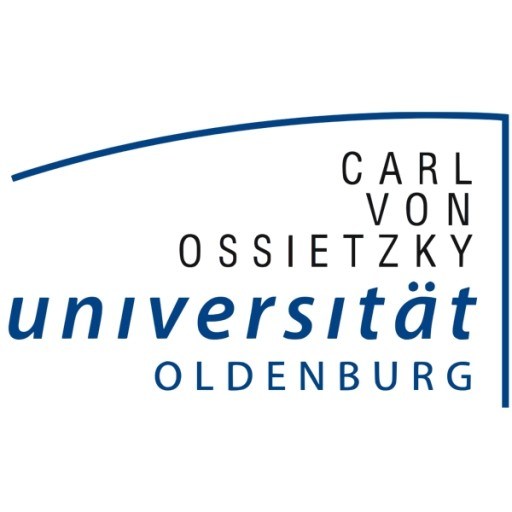Photos of university / #lmu.muenchen
The interdisciplinary MSc Psychology: Learning Sciences is offered by the Munich Center of the Learning Sciences (MCLS). It combines fundamental skills and expertise from the fields of psychology and education and has a clear focus on learning, research, and excellence. The programme includes the following core themes:
Interdisciplinary approach
Multiple academic disciplines investigate learning. In the past, they did so each in isolation. Yet, highly relevant processes and systemic problems, such as drop-out rates in educational systems, can be addressed adequately only through interdisciplinary collaborations. The MSc Psychology: Learning Sciences programme brings together researchers from psychology, educational science, neuroscience, economics, sociology, biology, mathematics, medicine, and computer science who methodologically share an empirical and quantitative orientation.
Supportive environment
Orientation support is provided in our "Welcome Week" at the beginning of the semester.
Additional tutoring is provided for specific courses, e.g. for statistics.
General and academic advising is provided by the coordinator, the programme instructors, and guest professors.
Excellent training conditions for a select group of students
The MSc Psychology: Learning Sciences is a research-oriented programme that promotes a select group of highly motivated students to engage in state-of-the-art research in the internationally emerging field of learning sciences. The programme encompasses knowledge and skills training in interdisciplinary knowledge, research methods, and transferable skills related to learning sciences. Courses are taught in the form of seminars, small classes, and colloquia, rather than lectures. The programme uses innovative approaches to teaching and learning, such as problem-based learning and inquiry learning. All courses are taught by leading scientists in their fields.
- cognition, emotion, learning, and development
- learning, instruction, training, and technology
- psychology of excellence
Interdisciplinary approach
Multiple academic disciplines investigate learning. In the past, they did so each in isolation. Yet, highly relevant processes and systemic problems, such as drop-out rates in educational systems, can be addressed adequately only through interdisciplinary collaborations. The MSc Psychology: Learning Sciences programme brings together researchers from psychology, educational science, neuroscience, economics, sociology, biology, mathematics, medicine, and computer science who methodologically share an empirical and quantitative orientation.
Supportive environment
Orientation support is provided in our "Welcome Week" at the beginning of the semester.
Additional tutoring is provided for specific courses, e.g. for statistics.
General and academic advising is provided by the coordinator, the programme instructors, and guest professors.
Excellent training conditions for a select group of students
The MSc Psychology: Learning Sciences is a research-oriented programme that promotes a select group of highly motivated students to engage in state-of-the-art research in the internationally emerging field of learning sciences. The programme encompasses knowledge and skills training in interdisciplinary knowledge, research methods, and transferable skills related to learning sciences. Courses are taught in the form of seminars, small classes, and colloquia, rather than lectures. The programme uses innovative approaches to teaching and learning, such as problem-based learning and inquiry learning. All courses are taught by leading scientists in their fields.
Educational organisation
The MSc Psychology: Learning Sciences study programme is structured into 14 study modules consisting of seven compulsory (P) and seven elective compulsory (WP) modules:- Module P1: Introduction to Psychology of Development, Learning and Excellence (15 ECTS) focuses on introducing the key theoretical approaches of the learning sciences. These approaches will come from the fields of cognitive, emotional, learning, developmental, neurocognitive, educational, social, and organisational psychology.
- Module P2: Evaluation and Research Methods (12 ECTS) offers students the knowledge and skills needed to plan and implement empirical research as well as to analyse and interpret data.
- Module P3: Assessment and Diagnostic Methods (12 ECTS) provides students with a comprehensive introduction to the basic principles of assessment and diagnostics as well as the knowledge required for planning and conducting diagnostic interventions.
- Module P4: Transferable Skills for the Learning Sciences (3 ECTS) is designed to narrow the gap between the knowledge students gain in the study programme and their further professional career. It offers networking opportunities with guest lecturers or professionals from the field who share their experiences with students.
- Module P5: Educational Perspectives in the Learning Sciences (6 ECTS) analyses educational systems from an organisational point of view.
- Module P6: Internship Module (12 ECTS) provides students the opportunity to apply their theoretically obtained knowledge in practice during an internship of 350 hours.
- Module P7: Final Module (30 ECTS) supports students with completing an individual scientific project and presenting and discussing it in a colloquium.
In terms of elective compulsory modules, students can choose either "Learning in Specific Domains" or "Clinical Psychology":
- Modules WP1 and WP6: Learning in Specific Domains I and II (6 ECTS) deal with the issue of how learning processes differ depending on the learning content. The focus is on theoretical models of domain-specific research on teaching and learning and their practical implementation, as well as on methods to analyse domain-specific learning processes.
- Modules WP2 and WP7: Clinical Psychology I and II (6 ECTS) refer to clinical aspects in relation to the educational context. The students get an overview of various disorders and learn about therapy possibilities. Further, current research within the clinical psychology is introduced and critically discussed.
Students also have the opportunity to specialise in two out of the three elective compulsory project modules. Each of these modules involves literature review, planning, designing, and conducting an empirical research project, as well as analyzing, describing, and discussing its results:
- Module WP3: Cognition, Emotion, Learning, and Development (12 ECTS) offers an intensive discussion of up-to-date research findings and methods in one of the four relevant fields (cognition, emotion, learning, or development).
- Module WP4: Learning, Instruction, Training and Technology (12 ECTS) deals with questions related to the application of modern instructional methods, such as computer-based learning, problem-based learning, collaborative learning and knowledge building in learning and teaching processes. Additionally, current research in the field with digital technologies are introduced and discussed.
- Module WP5: Psychology of Excellence (12 ECTS) deepens knowledge on excellence through an intense examination of current research and through conducting a research project.
Study abroad unit(s)
Students of the MSc Psychology: Learning Sciences may spend a study semester abroad. However, this is not compulsory.Internships
Students must complete an internship of 350 hours (ten weeks, 12 ECTS credits) in an educational institution or an organisation/business related to education and/or psychology. The internship should provide students with practical experience and key skills in relevant fields.Forms of assessment
Exams typically take the form of a written or oral exam, written homework, reports, scientific protocols, case studies, exercises, and/or posters.Course objectives
The MSc Psychology: Learning Sciences prepares and qualifies students for positions in research on learning. Many graduates choose to continue their studies by registering for the MCLS Doctoral Training Programme or other PhD degrees. Others go on to apply their knowledge in the fields of learning, training or evaluation - in both educational institutions and the business world.Language requirements
Non-native English language speakers must provide a proof of English proficiency in the form of an acknowledged language test certificate. The result should be the equivalent of at least level B2 as defined by the Common European Framework of Reference for Languages: Learning, Teaching, Assessment. For more information, please visit: http://www.coe.int/t/dg4/linguistic/cadre1_en.asp.Academic requirements
- Bachelor's certificate (or equivalent) in psychology, education, or in a related field
- prior knowledge and experience in the following three fields: learning sciences (at least 30 ECTS*), scientific research methods and statistics (at least 30 ECTS), and academic skills (at least 20 ECTS)
- thorough analysis of a scientific article
- motivation letter
Enrolment fees
Approx. 120 EUR per semester (six months). The fee includes a basic semester ticket. To purchase the full semester ticket covering all public transport in the Munich metropolitan area at all times, another approx. 160 EUR (for six months) are due.Costs of living
Living costs (including accommodation and health insurance) in Munich start from approx. 800 EUR per month.Arrival support
The MSc Psychology: Learning Sciences offers a "Welcome Week". During this period, students participate in a wide range of activities related to student life.Services and support for international students
The International Office offers a support and integration programme to assist international students, doctoral students, and postdocs at LMU:http://www.en.uni-muenchen.de/about_lmu/contact/int_office/index.html







